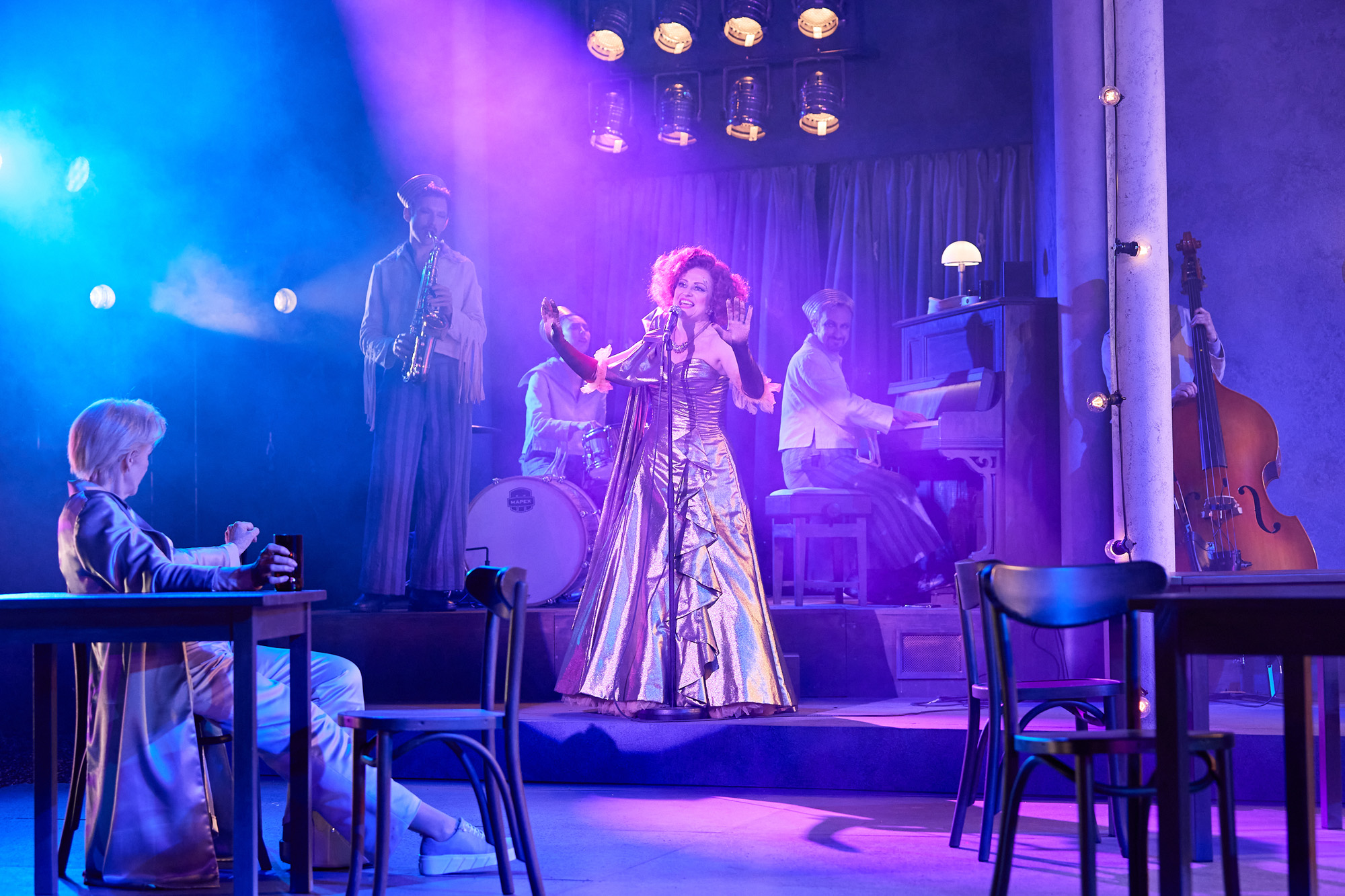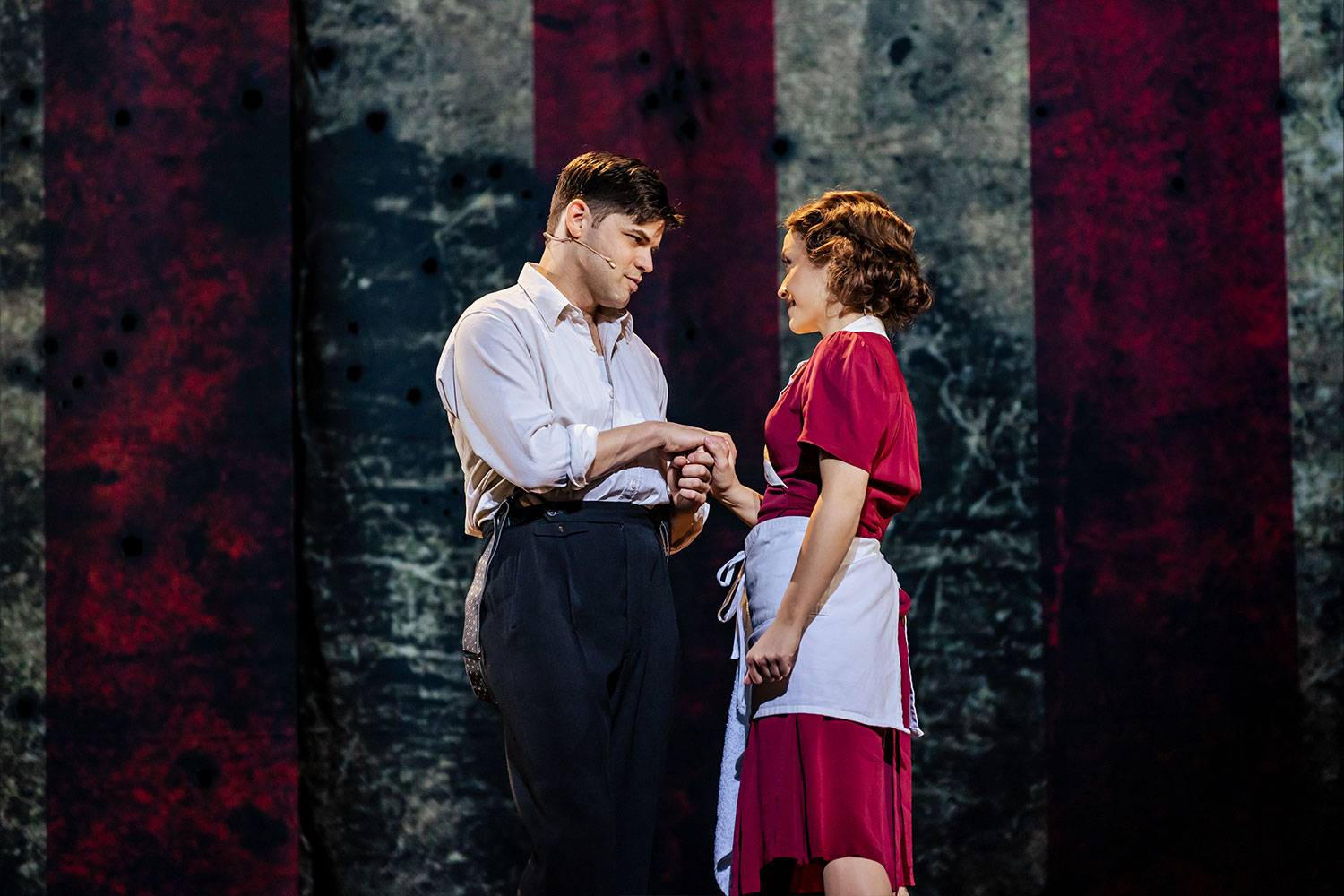Pericles (RSC)
Note: The following review dates from July 2002 and this production’s original run at the Roundhouse in London.
Middle Eastern design is supposedly ‘in’ this summer, and the RSC has captured the zeitgeist by offering a taste of the souk. From the minute you enter the Roundhouse auditorium, your senses are assaulted by the exotic fantasy concocted by director Adrian Noble and designer Peter McIntosh. The stage is awash with carpets and ornate lamps twinkle in the deepest recesses of the stage, and Shaun Davey‘s haunting music envelopes you, leading to the sort of entertainment extravaganza more usually associated with blockbuster musicals.
For those who have not seen this play (and that probably includes some regular Shakespeare goers), the plot is strongly redolent of an Arabian Nights’ fable. Pericles wins the hand of a king’s daughter, loses her in childbirth, then delivers to foster-parents (who turn out to be wicked, of course) his daughter Marina, who is captured by pirates before eventually being reunited with her father.
Put that way, it sounds glib; there’s certainly none of the moral ambiguity of mature Shakespeare. We aren’t given any insights into the psychological developments of the characters, nor does Pericles suffer his travails through acts of wickedness or intrinsic faults. Recognising this, Noble doesn’t attempt to impute any motives to Pericles: the play is treated as an adventure yarn and it’s all the more compelling for it.
As in the production of The Tempest, the whole expanse of the space is used – with pirates dropping from the roof (a move thrillingly emulated by Diana in Pericles’ final vision). In fact, this swashbuckling production could be the highlight of a pantomime season, although, there are moments when the acting does get a little too arch.
There’s a compelling performance from Ray Fearon in the title role. He has to portray every aspect of Pericles – from the dauntless young hero to the shattered, middle-aged misanthrope, haunted by the loss of his daughter – while encumbered with a wig that looks borrowed from a ZZ Top tribute band. (Noble, incidentally, doesn’t solve the textual problem of why Pericles twice swears that his hair shall remain uncut.)
Fearon receives strong support from Kananu Kirimi as a touching Marina – the two prompt plenty of sniffling when reconciled – and from Brian Protheroe as the chorus, Gower, whose crisp and cheerful verse immediately ensures that the entire audience is wrapped up in the story.
Like Edward Hall’s illuminating Rose Rage, a two-part adaptation of the Henry VI trilogy, this Pericles offers audiences a chance to see a Shakespeare play in a very different manner as to how they are usually conceived. Forget the disputes about authorship, forget the lack of subtlety in the text, this is storytelling of the highest possible standard.










